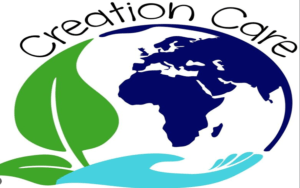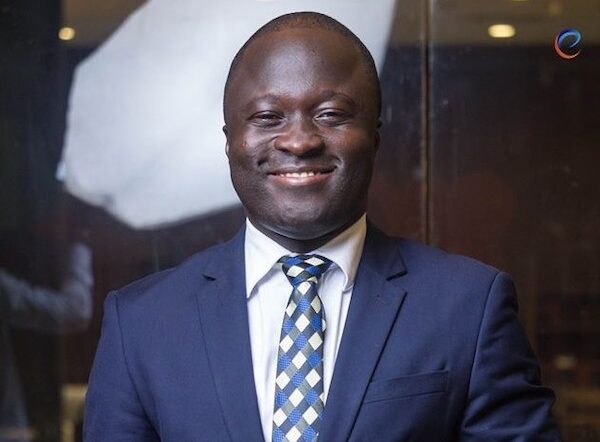Faith communities, motivated by spiritual values and driven by an ethical responsibility, wield enormous social and political influence when it comes to promoting action to restore ecosystems.
…. Iyad Abumoghli, Director of Faith for Earth Initiative – UNEP
The Lord God took the man and put him in the Garden of Eden to work it and take care of it (Genesis 2:15). The creator Himself realised how crucial it was to have man take care of the environment. Man has so far been tilling the land but never taken care of it as required.
In 2010-2011, when Ghana metamorphosed into a lower middle-income status on the back of world market rising prices and production of cocoa, gold and oil to quadruple the growth of GDP, the basic question was how sustainably this good development would spin and berth securely on natural capital. A World Bank Ghana Country Environmental Analysis indicated that the scale, scope and economic repercussions of environmental degradation on society at large, as a direct effect of those three decades of economic fortune, could not be overemphasised. The CEA report showed environmental degradation at a cost of US$6.3billion annually, which represented about 11 percent of Ghana’s 2017 GDP.
Plastics, air and water pollution have ramifications on health and hygiene; gold or diamond mines, unregulated solid waste, and contaminated sites produce hazardous chemicals; land degradation from unorthodox agricultural practices, deforestation, and overfishing heavily impact livelihoods and limit drivers of growth. Minerals like gold, diamond and oil are depleted and therefore cannot sustain growth. Renewable resources like timber, cocoa, food crops and other tree crops can only be sustained with good environmental stewardship. Erosion of natural capital put livelihoods and human health at risk as per scientific evidence.
Ghana continues to battle with the monster ‘gather them and sell’ (galamsey), plastic waste threats, degradation and many ecological challenges which seem unsurmountable even with government’s direct intervention since 2017. Many believe that politicians have so far failed in getting close to winning the fight and there seem to be no light at the end of the tunnel for technocrats and the government of the day. All others look to the direction of Faith Actors to take the bull by the horn and heed to the original instruction on the ecology by the Almighty God to “keep or dress it” after tilling.

Barriers to restoration and sustainability
The UN Environment Programme – Faith for Earth Initiative identified barriers to restoration of the environment:
- Limited awareness across societies, globally, of the considerable negative effects that ecosystem degradation is having on the well-being and livelihoods of billions of people, the costs of this degradation, and the profound societal benefits that would accrue with major investments in ecosystem restoration;
- Despite the economic benefits that restoration investments would bring societies, the pressure on decision-makers in public and private sector to invest in long-term ecosystem restoration initiatives is relatively small compared with the pressures to invest in other sectors like healthcare, manufacturing, education and defense;
- Relative scarcity of legislations, policies, regulations, tax incentives and subsidies that incentivise a shift in investments toward large-scale restoration and production systems, value chains and infrastructure that do not degrade ecosystems;
- Limited technical knowledge and capacity of national governments, local governments, local NGOs and private companies to design and implement large-scale restoration initiatives;
- Relatively small amount of finance that societies are making available for investing in large-scale restoration because of the perceived and/or real risks involved in such investments; and
- Limited investment into long-term research, including social as well as natural sciences, that focusses on innovation to improve restoration protocols through time.
Faith Actors Initiatives
Faith Actors have a well-established reputation in society, providing socio-economic services to local communities in the areas of welfare, education, health and disaster relief, focusing on the poor and marginalised. Values and faith-based lifestyles have demonstrated that sustainable local impact at all levels of society can be achieved. In some places, unwavering synergy is demonstrated between political and religious leadership.
With over 70 percent of Ghana’s population being Christians, the Church can spearhead this crusade and pull along all other faith actors to ensure non-reliant on politicians, but rather the unadulterated word from the pulpit to bring good deeds to the environment. He has committed to us the message of reconciliation and therefore we are Christ’s ambassadors as instructed in second Corinthians chapter five. The Church can become ambassadors of Christ in the ecological restoration and redesign.
Faith Actors can and must engage to seek political will from the government at both the national level and through decentralisation at the local level, legislature, business and landowners, traditional chiefs and other related parties to champion the restoration agenda. Such an initiative is crucial to implement multi-jurisdictional initiatives like the Great Green Wall Initiative, which is an African-led initiative spanning twenty nations across Africa, aiming to restore degraded landscape in the Sahel region.
There are many tangible initiatives Faith Actors can implement to help bring sustainability to our environment in both medium to long term. Creation Care is a must and non-negotiable.

- Faith Consistent Use of Asset 2. Education 3. Wisdom 4. Lifestyle 5. Media and Advocacy 6. Partnership 7. Celebration
Source: A Rocha Ghana and ARC
Conclusion
This first part of the feature gave background information and the original intent of the creator of the universe. A call to mankind to preserve the environment and make it sustainable. The part two will delve deeper into the various ways Faith Actors can leverage influence on society to arrive at achieving the goal of sustainability and to exorcise the ghost of destruction to Ghana’s once enviable ecology.
The environment must be preserved in order to live in harmony and fulfil our purpose. Any form of destruction will negatively affect the fulfilment of our purposes as dependents on the environment.
Credit
https://www.unep.org/news-and-stories/story/how-faith-based-organizations-are-restoring-nature [Assessed May 25]
https://wedocs.unep.org/xmlui/bitstream/handle/20.500.11822/34944/FFEI.pdf?sequence=1&isAllowed=y [Assessed May 23]
www.worldbank.org/ghana [Assessed May 26]
https://ghana.arocha.org/our-work/creation-care-and-interfaith-network/ [Assessed May 26]
http://www.arcworld.org [Assessed May 26]
https://www.wri.org/insights/faith-organizations-cities-sustainability [Assessed May 22]
https://www.wvi.org/ghana [Assessed May 22]
About the writer
Ebenezer specialises in Development Communication, International Development, Innovative Finance for SMEs and Sustainability.
You can reach him via [email protected] & [email protected]










